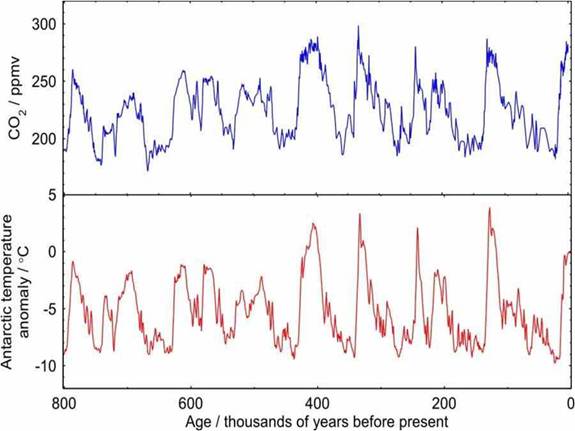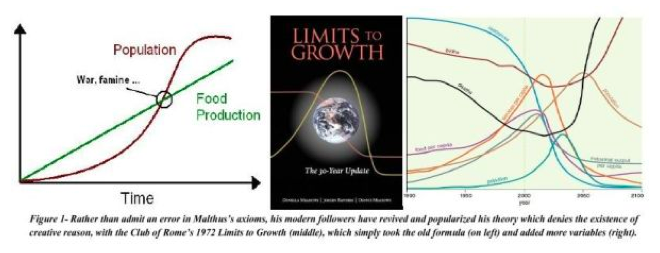The purpose of this work is to provide an investigation into the ideology of anthropogenic (human caused) climate change.
It has been written with the confidence that further research within the public, as well as the academic realm is required. Furthermore, the investigative strategy incorporated in this paper serves to provide a starting place for additional investigation. Therefore, the foundational reason for this work is to empower the understanding of the readership.
“We decided long ago that the dangers of excessive and unwarranted concealment of pertinent facts far outweighed the dangers which are cited to justify it…And there is very grave danger that an announced need for increased security will be seized upon by those anxious to expand its meaning to the very limits of official censorship and concealment. That I do not intend to permit to the extent that it is in my control.” John F. Kennedy
To initiate an evidentiary inquiry into geopolitical decision making, one must first understand the causal relations that frame how a scientific issue is presented, addressed and subsequently dismissed. Of importance, is the distinction between sound science and methods motivated by political self interest. In the case of the former, the observer maintains a qualitative standard founded upon the premise that such an investigation will enhance the comprehensive intelligence within their respective discipline. In the case of the latter, the observer upholds a personal standard founded upon the ideology that this method will satisfy their self-interest and accelerate their ascendance to academic prominence. Thus, to value the integrity of the former method, the current directive must be to inspire a holistic understanding within the readership, as well as to identify the inconsistencies that arise within the discourse pertaining to anthropogenic climate change.
To further clarify, the guiding principals and intent of this work is to transform power. Since the prevailing dominant discourse derives its influence through maintaining ignorance, a praxis grounded upon intellectual empowerment is the most effective use of this knowledge. This investigation begins with an analysis of inconsistencies documented by official sources.
First to be examined is the National Aeronautics and Space Administration. It is the prerogative of NASA to research and identify causal forces within Earth’s solar system. NASA identifies multivariate concerns over uncertainties pertaining to potential causal forces influencing climate change. “There’s a great deal that we don’t know about the future of Earth’s climate and how climate change will affect humans”, including the impacts of solar irradiance, aerosols/dust/smoke, clouds, the carbon cycle, ocean circulation, precipitation and sea level rise (NASA 2013). As illustrated by researcher Victor Herrera of the Institute of Geophysics at the National Autonomous University of Mexico, this statement by NASA is critical for “the models and forecasts of the UN IPCC are incorrect because they only are based on mathematical models and presented results at scenarios that do not include, for example, solar activity” (Morano 2008, pg 4). To omit such an influential contributor to climate change as the sun would inherently bias statistical models in favour of anthropogenic theorizing. NASA’s admission is important for it sets the groundwork for a genuine understanding on climate change.
A secondary piece of pertinent evidence is a report issued in 2012 by the United Kingdom’s National Weather Service. In this report, Colin Morice et al. state: “this model cannot take into account structural uncertainties arising from data set construction methodologies. It is clear that a full description of uncertainties in near-surface temperature, including those uncertainties arising from differing methodologies, requires that independent studies of near-surface temperatures should be maintained” (Morice, 2012, pg 5). This is important for the scientists involved clearly state the limitations of their chosen methodology, ie the HADCRUT4 data set, and recommend that independent research be conducted to affirm their findings.
David Rose, reporting for the UK’s Daily Mail, incorporated the graphs from this study into an article he wrote entitled Global Warming Stopped 16 years ago, reveals Met Office report. Rose also interviews a number of climate scientists who express uncertainty regarding the accuracy of climate modeling.
These interviews include “Professor Phil Jones, [former] director of the Climate Research Unit at the University of East Anglia…[who] admitted that he and his colleagues did not understand the impact of ‘natural variability’ – factors such as long-term ocean temperature cycles and changes in the output of the sun” (Rose 2012). Professor Phil Jones is the same individual “who found himself the centre of the ‘Climategate’ scandal over leaked emails..” (Rose 2012).
In these emails, Jones, in association with Michael Mann and other collaborators, communicate their intention to censor academic papers via intervening in the IPCC peer review process, as well as manipulate statistical data to conform to inaccurate climate forecast models. In a 2009 email correspondence between Kevin Trenberth and Michael Mann, Trenberth states: “the fact is that we can’t account for the lack of warming at the moment and it is a travesty that we can’t… Our observing system is inadequate” (Global Research 2009). As identified in the introduction, the actions of Jones and Mann perfectly illustrate the ideal of scientists working for academic self interest and not for the benefit of scientific understanding.
Arising from this case of intellectual manipulation is collateral damage. The scientific discipline of climate change and the severe ways upon which human beings are impacted by it, are dismissed in favour of the expert management of human populations. In the dominant discourse, additional issues such as globalization, corporatism, effective waste management, public health impacts, fresh water scarcity and natural resource privatization are often conveniently omitted. This practice of academic self interest attempts to discredit legitimate science while effectively empowering an environment of division, disinformation and subsequently, ignorance. It is within such an environment that opportunists thrive, pseudo-scientists whose rhetorical machinations frame the discourse of public opinion.
“[Thus it has become the case that] our government’s science and technology policy is now guided by uniformed and emotion-driven public opinion rather than by sound scientific advice. Unfortunately, this public opinion is controlled by the media, a group of scientific illiterates drunk with power, heavily influenced by irrelevant political ideologies, and so misguided as to believe that they are more capable than the scientific community of making scientific decisions” (Cohen 1984, pg 59).
A classic example, is Nobel Peace Prize recipient and former United States vice president Al Gore. A significant proponent of anthropogenic climate change, Gore also happens to be a major benefactor (The Telegraph). According to the Capital Research Centre’s publication Foundation Watch, “along with Gore, the co-founder of GIM [Generation Investment Management] is former Goldman Sachs CEO Hank Paulson…[In September 2006] Goldman Sachs bought 10% of CCX [Chicago Climate Exchange] shares for $23 million. CCX owns half of the European Climate Exchange (ECX), Europe’s largest carbon trading company…” (Barnes 2007, pg 4). This sale occurred the same year Al Gore released the film An Inconvenient Truth, which claims both a scientific consensus on anthropogenic climate change, as well as pushing the need to offset carbon emissions via green investments. (Freeman 2007, pg 29). In fact, the Executive Intelligence Review reports that “Al Gore spoke at the May 2005 INCR [Investors Network on Climate Risk] Investors Summit at the United Nations, in his capacity as Chairman of his Generation Investment Management. He called for following the model of the European Union Emissions Trading Scheme, which started up in 2005. Monetize emissions; trade them; reduce them, was Gore’s mantra” (Freeman 2007, pg 29).
Upon further analysis, Foundation Watch affirms that “like CCX, the European Climate Exchange has about 80 member companies, including Barclays, BP, Calyon, E.ON UK, Endesa, Fortis, Goldman Sachs, Morgan Stanley and Shell, and ECX has contracted with the European Union to further develop a future market in carbon trading” (Barnes 2007, pg 4). It is apparent that several significant benefactors are among the most powerful captains of banking, business and industry. The benefits they incur via the successful management of government policy and mainstream environmental activism is enormous and therein is the real inconvenient truth.
Therefore it is evident that the intentional manipulation of a scientific subject, can be designed to both generate a public reaction, as well as to benefit private interests. However, the real danger is when rhetorical mechanisms infiltrate the common sense of a particular population and influences that populations’ moral consciousness. When rhetoric, and those who employ it, can establish a jurisdiction of unquestionable authority, then it becomes a god, which through its own machinations, is capable of empowering its skillful technicians and silencing logical inquiry. The population, unaware of an intellectual coup d’etat, become willful participants in their own subjugation. Through their acquiescence to a society that abandons formative critical analysis and evidentiary investigation, the population voluntarily reinforces this invisible intellectual prison.
What develops next, is a form of group mentality. When robbed of the proper utilization of the reasoning faculty, a person surrenders to a set of prevailing assumptions, which in this case are reinforced by the rhetorical mechanisms operating in that society. “In fact, people can be so attached to ‘consensus reality’ that its assumptions and predictions override contradictory evidence. When speakers encounter a situation in which people or events do not fit the categories provided by their model of reality, they are more likely to describe those people or event to make them “fit” the model rather than change or revise the model itself” (Penelope 1990, pg 37). What this means is that even when a circumstance arises which exposes that person to an alternative perspective on reality, no matter how grounded in evidentiary logic, that individual will instinctively re-frame or reject that knowledge.
Knowledge, and its effective application, is power. Thus, the willful ignorance of the public creates the opportunity for technocratic domination, i.e., those with superior knowledge make unquestionable decisions that affirm their own superiority (Carson 2002, pg 12-13). This form of expert management arises and is attributed to the demand for it. This is a causal relationship. First, the public generates an expressed need for governance. Second, this need influences the nature and direction of the outcome. Without the demand, governance would not be delivered. Consequently, an important inquiry to raise at this juncture would be: is the current public’s expressed need also managed to support the prevailing political/economic status quo? In pursuit of this answer, the following analysis is offered.
It would seem that men and women need a common motivation, namely a common adversary against whom they can organize themselves and act together…[to] bring the divided nation together to face an outside enemy, either a real one, or else one invented for the purpose (Schneider 1991, pg 70).
In searching for a common enemy against whom we can unite, we came up with the idea that pollution, the threat of global warming, water shortages, famine and the like, would fit the bill…All these dangers are caused by human intervention in natural processes, and it is only through changed attitudes and behaviour that they can be overcome. The real enemy then is humanity itself (Schneider 1991, pg 75).
This report entitled The First Global Revolution, was published by the Club of Rome in 1991. According to their website, “the Club of Rome is a non-profit organisation, independent of any political, ideological or religious interests. Its essential mission is to act as a global catalyst for change through the identification and analysis of the crucial problems facing humanity and the communication of such problems to the most important public and private decision makers as well as to the general public” (Club of Rome). It appears, that one of these most important private decision makers, is none other than Al Gore, who holds a membership with the Club of Rome (ABC News 2007).
Throughout this evidentiary inquiry into anthropogenic climate change, the following connections have been witnessed:
1) the statistical manipulation and censorship of data by leading anthropogenic climate scientists [Phil Jones, Michael Mann],
2) the intrinsic bias towards anthropogenic causal forces inherent in Intergovernmental Panel on Climate Change forecast models [Herrera, detailing omission of solar activity],
3) the admission of systemic uncertainties inherent in climate forecast methodologies [UK National Weather Service],
4) the widespread unknown variables identified by NASA [solar irradiance, aerosols/dust/smoke, clouds, the carbon cycle, ocean circulation, precipitation and sea level rise], 5) the corporate, industrial and banking interests behind major proponents of anthropogenic climate change [Barclays, BP, Endesa, Fortis, Goldman Sachs, Morgan Stanley et al], and
6) the calculated ideological premise that human beings are the source of all environmental problems and thus an enemy to humanity itself [Club of Rome]. Subsequently, the consequences of this prevailing worldview must be addressed.
In doing so, it is important to understand that this prevailing discourse arises primarily from a position of advanced financial capital and influence. Hence, its intentional dissemination by public, private and corporate actors serve to further promulgate its sphere of influence (Schneider 1991, pg 157). The major tenets of this worldview propose limitations on human energy consumption, as well as restrictions on activities that generate carbon output. The expressed bias inherent in how anthropogenic climate change is presented to the public is that of a blaming the victim modality, i.e., that the public must bear the responsibility of the corporate/military/industrial sector.
According to Professor Delgado Domingos of the Numerical Weather Forecast group, “creating an ideology pegged to carbon dioxide is a dangerous nonsense…The present alarm on climate change is an instrument of social control, a pretext for major businesses and political battle. It became an ideology, which is concerning” (Morano 2012, pg 5). Thus, when driving at the heart of this manipulation, it becomes clear that its overarching purpose is not to manifest a global environmental equilibrium, but in fact to re-enforce the predominant political/economic status quo.
This is further illustrated by the aforementioned report by the Club of Rome. Authors Alexander King and Bertrand Schneider state: “the global nature as well as the seriousness of the environmental crisis, especially that of earth-warming, indicates the need for a coherent and comprehensive attack at the international level and at the level of the United Nations” (Schneider 1991, pg 99). They continue: “in addition, we propose the organization, possibly under the auspices of the Environmental Security Council, of regular meetings of industrial leaders, bankers and government officials from the five continents. These Global Development Rounds, envisaged as being somewhat similar to the Tariff Rounds of GATT [General Agreement on Tariffs and Trade; a precursor to the World Trade Organization], would discuss the need to harmonize competition and cooperation in the light of environmental constraints” (Schneider 1991, pg 100).
Essentially, the authors are calling for an agreement among prominent political, economic and financial institutions, to facilitate the centralization of collaborative decision making. This citation is also an example of the discourse “administrative rationalism [which] may be defined as the problem-solving discourse which emphasizes the role of the expert rather than the citizen or producer/consumer in social problem solving, and which stresses social relationships of hierarchy rather than equality or competition” (Dryzek 2005, pg 75). Hence, the prevailing dominion of international economic powers is strengthened via this form of environmentalism, and anthropogenic climatology, in the manner it has been presented to the public, inculcates an environment of oppression.
A major mechanism by which this form of expert management is being implemented around the world is the International Council for Local Environmental Initiatives, also known as ICLEI: Local Governments for Sustainability. As previously identified, there is a causal relationship between the public’s demand for governance and its delivery. Subsequently, an important question to consider is: can an international secretariat that identifies itself as “…a powerful movement of 12 mega-cities, 100 super-cities and urban regions, 450 large cities as well as 450 medium-sized cities and towns in 84 countries…[that] have built a global sustainability network of more than 1,000 local governments…”, influence the public’s demand for this form of governance (ICLEI 2013)?
According to the Capital Research Centre report ICLEI – Local Governments for Sustainability, the answer is an affirmative. The author David Libardoni states: “…the group [ICLEI] is the product of a United Nations conference: the U.N. World Congress of Local Governments for a Sustainable Future…[Bolstered by ICLEI’s delivery system,] ambitious local politicians around the world are using ICLEI as an international platform that allows them to build their careers and quickly network with one another on environmental issues” (Libardoni 2008, pg 2).
It appears that politicians willing to become proponents of anthropogenic climate change, as well as ICLEI itself, stand to benefit both financially and politically through the collaborative success of this ideology. For in addition to the sliding-scale membership fees charged to local municipalities (calculated by population size), “over the past 11 years [2008 statistic], ICLEI has received between $250,000 and $1,500,000 annually in EPA grants to fund its CCP [Cities for Climate Protection] Campaign and emissions analysis software. In 2006, it reported $904,000 in governmental grants (out of $3.3 million in total revenue) on its IRS 990 tax form…” (Libardoni 2008, pg 3). In addition to these grants, “in 1997, the Open Society gave ICLEI a $2,147,415 grant to support its Local Agenda 21 Project, also sometimes known as Communities 21…More recently, ICLEI has received major contributions from the left-leaning Rockefeller Brothers Fund ($650,000 in March 2008, $525,000 in 2006), the Surdna Foundation ($200,000 in 2006), the Kendall Foundation ($150,000 in 2007) and the Richard and Rhoda Goldman Foundation ($100,000 in 2007)” (Libardoni 2008, pg 3). Thus, in light of this evidence gathered concerning the European Climate Exchange, as well as the financial benefits accrued by ICLEI, it becomes readily apparent that the discipline of anthropogenic climatology in concert with private self-interest can in praxis become an ideology of corporatism, advanced financial capital and multinational industry.
It is precisely this ideology that is demonstrated by the New Brunswick provincial government and in particular, the Department of Environment and Local Government. By way of illustration, the following select objectives from the chapter Action Plan Milestones derived from the department’s publication Action Plan for a New Local Governance System in New Brunswick, are identified:
“Transfer the cost of service administration for Local Service Districts to those who receive the service, effective January 2012, by introducing amendments to the Municipalities Act” [Fall 2011] (New Brunswick 2011, pg 16).
“Create a new community funding arrangement, replacing the Unconditional Grant, by introducing amendments to the Municipal Assistance Act” [Fall 2012] (New Brunswick 2011, pg 17).
“Engage stakeholders in the development of community sustainability criteria and a self- assessment tool” [Spring 2013] (New Brunswick 2011, pg 18).
“Implement community and municipal sustainability targets for the establishment and restructuring of Municipalities and Rural Communities” [Fall 2013] (New Brunswick 2011, pg 18).
“Seek input from stakeholders on a framework for a new Local Governance Act as part of the policy development process” [Summer 2013] (New Brunswick 2011, pg 18).
Regardless of the purpose, direction or intended result of the above provisions, the action plan milestones that the New Brunswick government is committing to are consistent with the discourse of administrative rationalism, as well as the designed sustainability criteria of ICLEI. To ground this proposition in evidentiary logic, the following comparison is provided by way of a citation from ICLEI Canada’s publication Changing Climate, Changing Communities: Guide and Workbook for Municipal Climate Adaptation (ICLEI Canada, pg 8):
To further clarify this evident congruence between ICLEI’s Milestone Framework and New Brunswick’s Action Plan Milestones, “as outlined earlier, Canadian local governments should be familiar with the Milestone process, as it is also central to the Partners for Climate Protection (PCP) program offered in partnership by the Federation of Canadian Municipalities and ICLEI” (ICLEI Canada, pg 6). Remarkably, this corresponds to the objectives outlined in the previously cited Club of Rome publication, The First Global Revolution: “it would be appropriate that the scheme [energy efficiency] be launched by the United Nations in association with the United Nations Environment Programme (UNEP), the World Meterological Organization and Unesco [United Nations Educational, Scientific and Cultural Organization].
A corollary would be the setting up in each country of an Energy Efficiency Council to supervise the operation on the national scale” (Schneider 1991, pg 99). In accord with this proposal ICLEI’s World Secretariat recently announced, “ICLEI and the United Nations Environment Programme (UNEP) are joining efforts in conducting a global survey on resource efficiency in cities with an objective to get a wide range of city level perspectives and understandings of local needs on resource efficiency.
The global survey will run between March and May 2013 and will result in a final report planned for August 2013. The survey is conducted by a team of experts led by ICLEI’s World Secretariat in close collaboration with UNEP’s Built Environment Unit. The results will inform the Global Initiative for Resource Efficient Cities (GI-REC)” (ICLEI World Secretariat 2013). Indeed, it is evident, that in the dominions of finance, politics and industry, multivariate international powers have aligned their objectives. This method of harmonization between international powers, by which prominence is consolidated and agreements are constituted, is known as globalization.
According to the Oxford English Dictionary, globalization is defined as “the process by which businesses or other organizations develop international influence or start operating on an international scale [e.g. ICLEI]” (Oxford Dictionaries Online 2013).
The concept of sustainability, disseminated and affirmed by previously identified proponents and benefactors of anthropogenic climate change, is “[a subject or practice being] able to be maintained at a certain rate or level: sustainable economic growth, [as well as] conserving an ecological balance by avoiding depletion of natural resources (Oxford Dictionaries Online 2013). These goals are consistent with the operational capacities of corporations active in the natural resource extraction industry, with several currently accruing a substantial profit via the European Climate Exchange [BP, Endesa, Shell, Goldman Sachs, Barclays] (Barnes 2007, pg 4).
In addition, the previously cited ICLEI Canada publication, Changing Climate, Changing Communities: Guide and Workbook for Municipal Climate Adaptation, “..was made possible with the generous support of Natural Resources Canada: Climate Change Impacts and Adaptation Division (ICLEI Canada, pg 3). Now that ICLEI’s employed methodology (i.e. globalization) has been established, the next question of this evidentiary inquiry is the following: in relation to the intentional manipulation of the scientific discipline of anthropogenic climate change, are there additional methods that further the personal and/or private interests of another organization? To be addressed is the military industrial complex.
A high-risk, high-reward endeavor, weather-modification offers a dilemma not unlike the splitting of the atom. While some segments of society will always be reluctant to examine controversial issues such as weather-modification, the tremendous military capabilities that could result from this field are ignored at our own peril. From enhancing friendly operations or disrupting those of the enemy via small-scale tailoring of natural weather patterns to complete dominance of global communications and counterspace control, weather-modification offers the war fighter a wide-range of possible options to defeat or coerce an adversary (Celentano 1996, pg vi).
In this 1996 United States Department of Defense research paper, Weather as a Force Multiplier: Owning the Weather in 2025, authors Major Ronald J. Celentano et al. promulgate the importance, as well as (in their view) the opportunities intrinsic to the integration of weather modification technologies into conventional warfare. As noted in this report’s Executive Summary, “in 2025, US aerospace forces can ‘own the weather’ by capitalizing on emerging technologies and focusing development of those technologies to war-fighting applications. Such a capability offers the war fighter tools to shape the battlespace in ways never before possible. It provides opportunities to impact operations across the full spectrum of conflict and is pertinent to all possible futures” (Celentano 1996, pg vi).
To accurately illustrate these proposed capabilities, Celentano et al chronologically incorporate Table 1: Operational Capabilities Matrix on the next page of their research paper. The following citation is this identical table, copied verbatim from this publication (SEE Celentano 1996, pg vii).
Subsequently it becomes readily apparent that the United States Air Force, as well as the US Department of Defense, have an expressed interest in anthropogenic climate change. Their interest, is largely dependent on their ability to strategically profit from it. To affirm this analysis, Professor Michel Chossudovsky, Director of the Centre for Research on Globalization states, “rarely acknowledged in the debate on global climate change, the world’s weather can now be modified as part of a new generation of sophisticated electromagnetic weapons. Both the US and Russia have developed capabilities to manipulate the climate for military use” (Chossudovsky 2004).
This ideology of self-interest is consistent among all of the exclusive proponents of anthropogenic climate change identified in this investigation. Evident, within the operating methodology of each proponent, is a calculated benefit directly attributed to the successful dissemination of this incomplete and ‘debate settled’ ideology of anthropogenic climate change. Several of the prominent organizations cited are actively involved in the indoctrination of citizens, as well as strategically influencing government policy. Therefore, any remedy offered via this evidentiary inquiry must maintain, as its foundation, a qualitative standard pursued for the purpose of empowering public consciousness. It is integrity, not manipulation, deception, or disinformation that will achieve both an accurate understanding of climate causal forces as well as create an inclusive participatory process for affecting positive environmental change.
Fortunately, there is a growing opposition to the claimed consensus regarding anthropogenic climate change as well as considerable numbers of scientists seeking to accurately understand climate causal forces. Reported by the United States Senate Committee on Environment and Public Works, in 2008 over six hundred fifty scientists expressed opposition to the claimed scientific consensus on anthropogenic climate change (Morano 2008, pg 1).
[According to this report:] “the following developments further secured 2008 as the year the ‘consensus’ collapsed. Russian scientists ‘rejected the very idea that carbon dioxide may be responsible for global warming’. An American Physical Society editor conceded that a ‘considerable presence’ of scientific skeptics exists. An International team of scientists countered the UN IPCC, declaring: ‘Nature, Not Human Activity, Rules the Climate’. India issued a report challenging global warming fears. International Scientists demanded the UN IPCC ‘be called to account and cease its deceptive practices,’ and a canvass of more than 51, 000 Canadian scientists revealed 68% disagree that global warming science is ‘settled’” (Morano 2008, pg 2).
Upon evaluation of this Senate Committee’s report, in additional to the aforementioned statements by scientific sources, it can be surmised that any entity, scientific or otherwise, claiming a global consensus on anthropogenic climate change is doing so: a) falsely, and b) to further their own ideological agenda. The following lecture citation, by Dr. Taylor Gray, concurs with this open minded analysis of anthropogenic climate change: “the occurrence of ecosystems maintaining a state of dynamic equilibrium stipulates that the phenomena of climate change is a naturally occurring process. To identify climate change as a problem is exclusively the prerogative of human beings and their unwillingness to accept environmental factors that are beyond their control” (Gray 2013). With this understanding, morality when taken from a practical standpoint, is largely founded upon the availability of the essential ingredients required for life. According to Dr. Gray, “as a naturally occurring biogeochemical cycle, as well as playing the role of an important atmospheric component, carbon is essential for the fats, proteins, and carbohydrates that constitute life. Thus, limiting carbon would place a limiting factor upon the potential for life” (Gray 2013).
What is within the power of human beings, are the ways upon which we build an authentic global community; one founded upon compassion and awareness of the growing needs of environmentally disadvantaged peoples. For example, liberating immigration restrictions to Canada, would allow this country’s comparatively minor population-to-landmass representation (approximately thirty five million, out of a global population of over seven billion) to become proportional through the vitalization by peoples in need of a more hospitable environment. International solidarity based upon localized commodity/agricultural markets would decrease the privatization of arable land in developing countries, which in turn would advance international food security. The creation of empowered generations skilled in home-building, permaculture, holistic medicine and environmental science would limit international economic dependency and encourage healthy, inclusive and self-sufficient communities. However, before this can happen, the prevailing untruths within society must be addressed.
The effective application of knowledge is powerful. And to provide a remedy to a public that willfully embraces convenient untruths is two-fold. To begin, the inculcation and transmission of ignorance must be replaced with a social/economic paradigm that supports continuous learning. To be clear, this would take the form of encouraging independent thought, critical analysis and informed opinion. This instrument of social advancement must have one and only one primary objective. That being the cooperative evolution of human consciousness.
To achieve such a social mechanism the first remedy must be manifested in concert with the second, i.e., the systemic replacement of the conditions upon which material benefit is derived from intellectual manipulation. Effectively, this would mean organizing around a political/economic paradigm that did not foster an environment of exploitation. Conversely, the praxis of this new paradigm would be the encouragement of an informed and intellectually adept body politic.
The success of this naturopathic remedy would arise organically from a psychologically healthy population. Upon this foundation intellectual creative power could create a holistic and inclusive political/economic paradigm. A public effectively self-immunized against ignorance brings with it the opportunity for unheralded philosophical and scientific evolution. In relation to governance and geopolitical decision making, the expressed public demand for it would end making psychological domination effectively irrelevant. Thus, when the conditions for freedom surround the human family, the only problem that remains is choice.
On some positions, cowardice asks the question, is it expedient? And then expedience comes along and asks the question, is it politic? Vanity asks the question, is it popular? Conscience asks the question, is it right? There comes a time when one must take the position that is neither safe nor politic nor popular, but he must do it because conscience tells him it is right. Martin Luther King Jr.
References
ABC News. Club of Rome Member Warns Against Council Amalgamations. Published 5 June 2007. http://www.abc.net.au/news/2007-06-05/club-of-rome-member-warns-against-council/58734
Club of Rome. Organization: Overview. Club of Rome. Accessed 14 April 2013. http://www.clubofrome.org/?p=199
Baker, Marcia Merry. A Genocidal Hoax: A Chronology of the Global Warming Swindle in LaRouche Lyndon’s Executive Intelligence Review. March 30, 2007. Vol. 34, No. 13, p. 51-55.
Barnes, Deborah Corey. Capital Research Centre: Foundation Watch. Published August 2007. http://capitalresearch.org/pubs/pdf/v1185475433.pdf
Carson, Rachel. Silent Spring. United States: Houghton Mifflin Company, First Mariner Books Edition, 2002.
Celentano, Maj Ronald J et al. Weather as a Force Multiplier: Owning the Weather in 2025. Air Force 2025: United States Department of Defense,1996.
Chossudovsky Ph.D., Michel. The Ultimate Weapon of Mass Destruction: “Owning the Weather” for Military Use. Centre for Research on Globalization. Published 27 September 2004. http://www.globalresearch.ca/the-ultimate-weapon-of-mass-destruction-owning-the-weather-for-military-use-2/5306386
Cohen, Bernard L. Statement of Dissent in Ed. Julian Simon and Herman Khan’s The Resourceful Earth: A Response to Global 2000. United States: Basil Blackwell Incorporate, 1984.
Dryzek, John, The Politics of the Earth: Environmental Discourses. New York: Oxford University Press, 2005.
Freeman, Richard & Marcia Merry Baker. Carbon Tax Swindle Behind Gore Hoax in LaRouche Lyndon’s Executive Intelligence Review. March 30, 2007. Vol. 34, No. 13, p. 29-34.
Gray, Taylor, Ph.D. Lecture on Anthropogenic Climate Change, St. Thomas University, 27 March 2013.
Global Research. Ed. Michel Chossudovsky Ph.D. Manipulation of Data and Concepts: The Climate Change Emails. Centre for Research on Globalization. Published 29 November 2009. http://www.globalresearch.ca/manipulation-of-data-and-concepts-the-climate-change-emails/16324
ICLEI. Who We Are. ICLEI: Local Governments for Sustainability. Accessed 14 April 2013. http://www.iclei.org/iclei-global/who-is-iclei.html.
ICLEI Canada. Changing Climate, Changing Communities: Guide and Workbook for Municipal Climate Adaptation. ICLEI: Local Governments for Sustainability. Accessed 15 April 2013. http://www.fcm.ca/documents/tools/PCP/changing_climate_changing_communities_guide_for_municipal_climate_adaptation_EN.pdf
ICLEI World Secretariat. UNEP – ICLEI Global Survey on Resource Efficiency in Cities. ICLEI: Local Government for Sustainability. Accessed 15 April 2013. http://www.iclei.org/our-activities/research-consulting/unep-iclei-global-survey.html
Kennedy, John F. Address: The President and the Press, Before The American Newspaper Publishers Association. New York City: 27 April 1961. Transcript contributors: Gerhard Peters and John T. Woolley, The American Presidency Project. http://www.presidency.ucsb.edu/ws/?pid=8093.
King Jr., Martin Luther. Remaining Awake Through A Great Revolution. Washington D.C.: 31 March 1968. Transcript contribution: Martin Luther King, Jr. Research And Education Institute, Standford University. http://mlk-kpp01.stanford.edu/index.php/encyclopedia/ documentsentry/doc_remaining_awake_through _a_great_revolution/
Libardoni, David. ICLEI – Local Governments for Sustainability: Taxpayer Dollars and Foundation Grants Help A U.N. Inspired Group Show U.S. Cities How to Enact Climate Change Policies. Capital Research Centre: Organizational Trends. Published November 2008. http://capitalresearch.org/pubs/ pdf/v 1225578943.pdf
Morano, Marc et al. U.S. Senate Minority Report: More Than 650 International Scientists Dissent Over Man-Made Global Warming Claims, Scientists Continue To Debunk “Consensus” in 2008. U.S. Senate Committee on Environment & Public Works. Published 11 December 2008. http://www.epw.senate.gov/public/index.cfm?FuseAction=Files.View&FileStore_id=83947f5d-d84a-4a84-ad5d-6e2d71db52d9
Morice, Colin et al. Quantifying uncertainties in global and regional temperature change using an ensemble of observational estimates: the HadCRUT4 data set, UK Met Office, 2012. http://www.metoffice.gov.uk/hadobs/hadcrut4/HadCRUT4_accepted.pdf.
NASA. National Aeronautics and Space Administration. Uncertainties: Unresolved questions about Earth’s climate. Accessed 13 April 2013. http://climate.nasa.gov/uncertainties.
Oxford Dictionaries Online. Globalization. Oxford English Dictionary. Accessed 16 April 2013. http://oxforddictionaries.com/definition/english/globalization
Oxford Dictionaries Online. Sustainable. Oxford English Dictionary. Accessed 16 April 2013. http://oxforddictionaries.com/definition/english/sustainable?q=sustainability#sustainable__6
New Brunswick. Department of Environment and Local Government. Action Plan for a New Local Governance System in New Brunswick. December 2011. http://www2.gnb.ca/content/dam/gnb/ Departments/lg-gl/pdf/ActionPlanLocalGovernance.pdf
Penelope, Julia. Speaking Freely: Unlearning The Lies of The Father’s Tongues. United States: Pergamon Press, 1990.
Rose, David. Global Warming Stopped 16 years ago, reveals Met Office report. Daily Mail. Published 16 October 2012. http://www.dailymail.co.uk/sciencetech/article-2217286/Global-warming-stopped-16-years-ago-reveals-Met-Office-report-quietly-released–chart-prove-it.html.
Schneider, Bertrand and Alexander King. The First Global Revolution: A Report By The Council Of The Club Of Rome. Orient Longman, 1991.
The Telegraph. Al Gore could become world’s first carbon billionaire. Ed. Richard Fletcher. The Telegraph Media Group. Published 3 November 2009. http://www.telegraph.co.uk/earth/energy/6491195/Al-Gore-could-become-worlds-first-carbon-billionaire.html
Tracy Ph.D., James F. Chemtrails: The Realities of Geoengineering and Weather Modification. Centre for Research on Globalization. Published 8 November 2012. http://www.globalresearch.ca/chemtrails-the-realities-of-geoengineering-and-weather-modification/5311079
James Divine is a well-traveled transdisciplinary who believes freethinking is essential to the well-being of human innovation. His maverick personality confidently resonates with holistic medicine, investigative literature and spiritual empowerment.

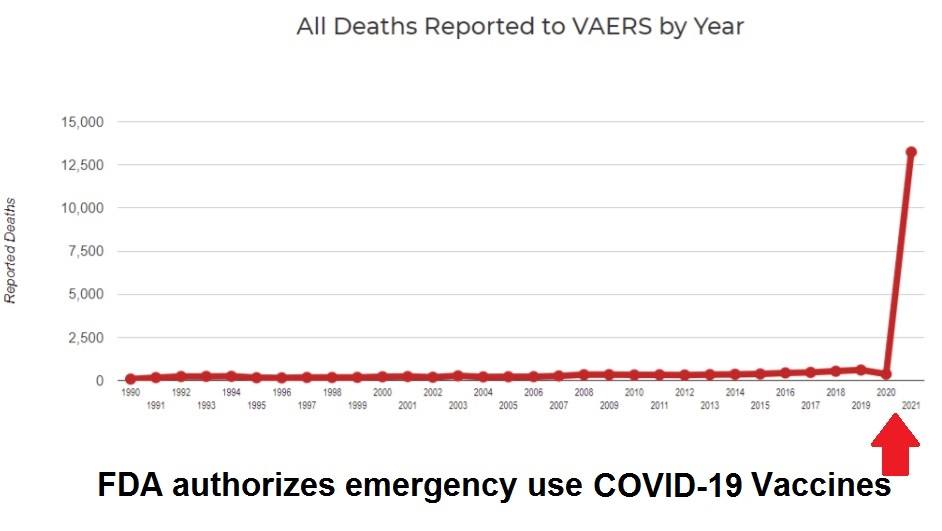
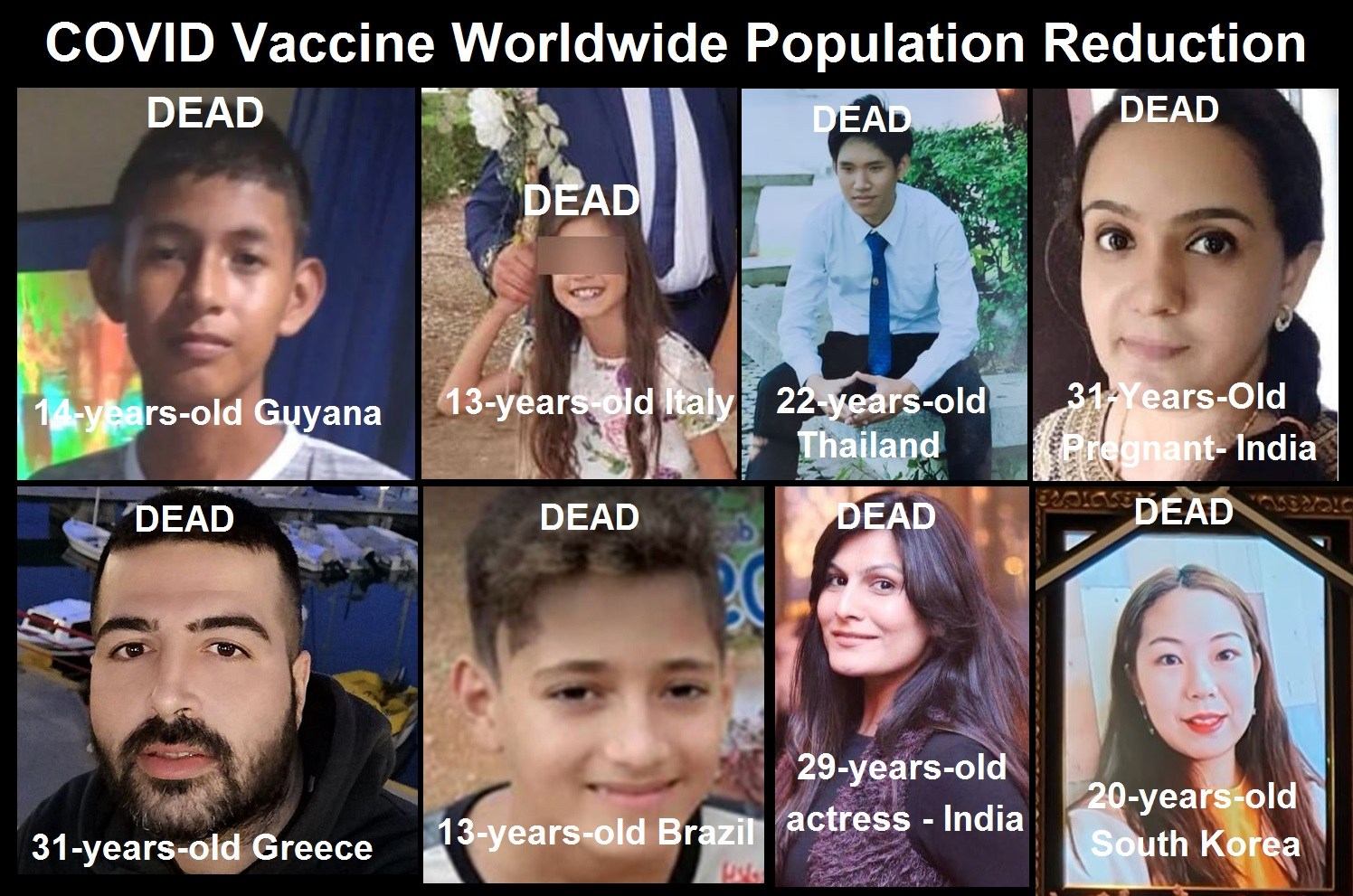








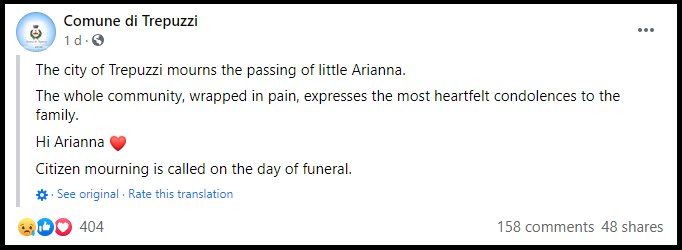

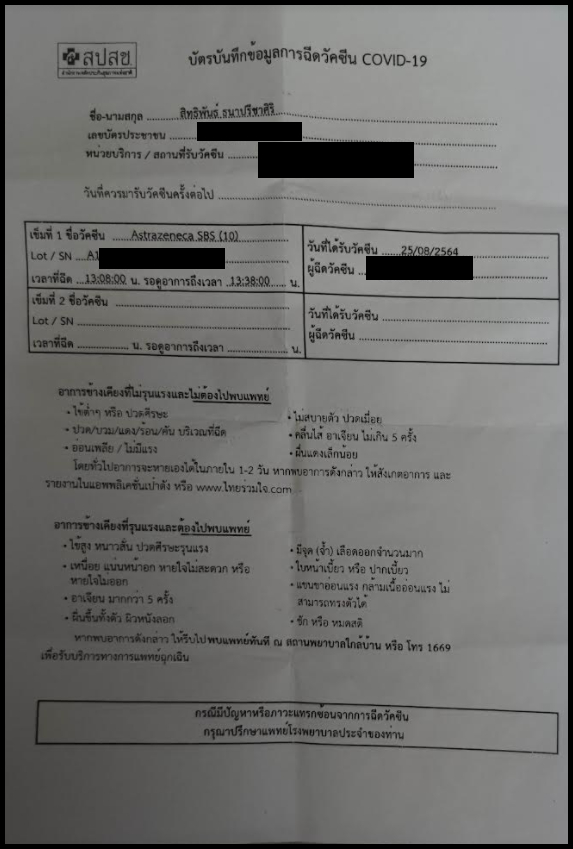




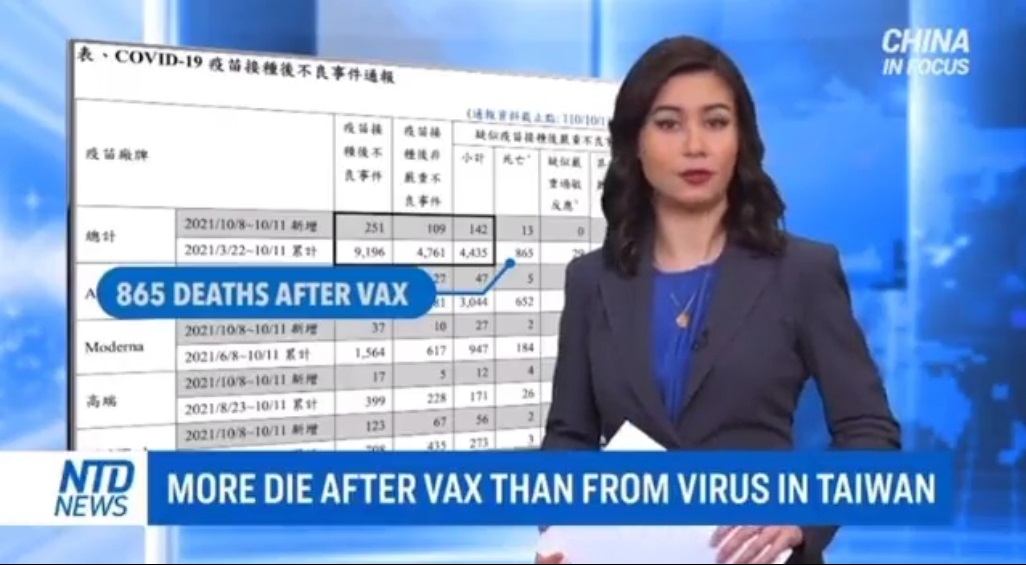
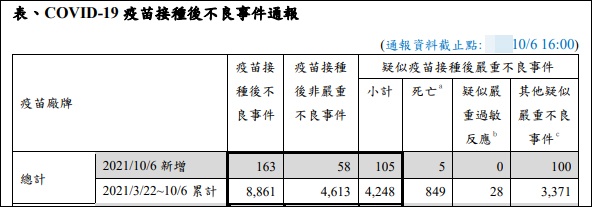


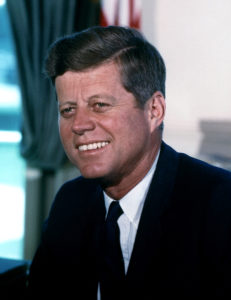

 Jeffrey A. Tucker is Founder and President of the Brownstone Institute and the author of many thousands of articles in the scholarly and popular press and ten books in 5 languages, most recently
Jeffrey A. Tucker is Founder and President of the Brownstone Institute and the author of many thousands of articles in the scholarly and popular press and ten books in 5 languages, most recently 










